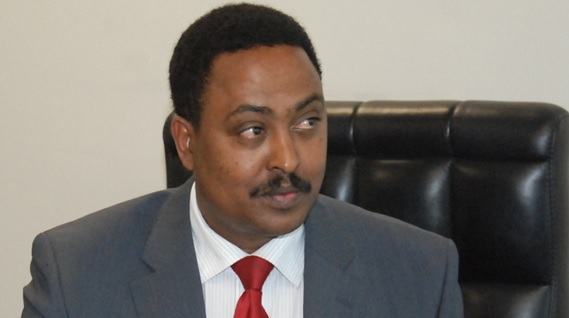
Addis Ababa (ANA)–As the presidential election in Somalia approaches, the Ethiopian government has promised support assuring peaceful elections.
Though much of the country is still under the control of Islamist militant group Al Shabaab, especially after the withdrawal of the Ethiopian military, the Ethiopian government seems to be committed to working towards building a peaceful Somalia.
During a visit this week, Somali Prime Minister Abdirashid Ali Sharmarke met Ethiopian officials, including newly appointed Foreign Affairs Minister Workineh Gebeyehu.
Ministry of foreign affairs spokesperson Tewolde Mulgeta, who attended the discussions, said Gebeyehu assured Sharmarke of Ethiopia’s readiness to offer capacity building support in addition to ensuring peace during the election period.
Ethiopia would play its role as a neighboring country and chair of the Intergovernmental Authority on Development (IGAD) to ensure smooth and peaceful elections.
However, it was not clear if Ethiopia would halt withdrawing its troops from Somalia. Ethiopia has been withdrawing troops that are not part of the African Union Mission in Somalia (AMISOM) but have been instrumental in containing Al Shabaab in the central region, leaving a vacuum that is encouraging the re-emergence of the militant group.
Al Shabaab has not only retaken nine towns in the central region along the border with Ethiopia, but has also threatened to disrupt the presidential election scheduled for November 30.
In an interview with the BBC, United Nations special representative to Somalia Michael Keating said the presidential election could be postponed to next month, as the parliamentary elections were still in progress in various regions in Somalia.
Eighteen Somalis have been confirmed to contest the country’s historic presidential election – the first since 1984. Somalia held indirect presidential elections in 2012 to establish its first federal government after more than 20 years of political vacuum.
Indirect elections have been taking place since October as the country remains too unsafe for a national vote. Somalia has not had a functional national government since the ousting of Mohamed Siad Barre in 1991.
Sharmarke thanked Ethiopia for its efforts to bring sustainable peace and security in his country. He said he had also discussed with the minister ways of further strengthening relations between the two countries.
About 50 percent of Somalia’s parliamentary elections are complete, and the country’s electoral and dispute resolution bodies have said allegations of corruption, irregularities, and intimidation would be investigated, which could result in the nullification of rigged results. | African News Agency (ANA)
Source: Independent Online
——
Other stories:
